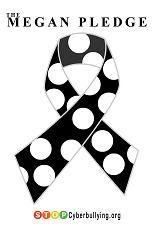I have two very important opportunities to advocate generally for autistics. I am the chair of the Parent Advisory Committee for our local special ed system, and I am also on the committee that is supposed to be training school personnel about autism. No one who is actually autistic is on either of these committees, yet both have a good deal of power over the lives of autistic children, and even some autistic adults (special ed can rule your life until you turn 23).
I have a friend who was appointed the chair of his department. He took it as the huge honor, that everyone must think so much of him. Itried my best to tell him that being chair of a department is not an honor- it often rotates like a hot potato among faculty members- it is an opportunity. You have your chance to do things your own way, to get your own ideas heard, to get things you think are important on the agenda.
Being chair of the advisory committee and being on this autism training committee are similarly opportunities. I can stand in front of the school board, the superintendant, the director of student services, the principals, the teachers, and say anything I want. Here is an opportunity- and a rsponsibility, What do I say? When do I say it?
So far, my message has been "disabled people are, first and foremost, people." When asked about curing autism and what stance the school should take regarding autism, this has been my answer: Autistic people are people. Treat them with the same respect you expect to receive. They have the same right to be educated that any non-autistic child has. They need the same opportunity to be independent and socially responsible that any non-disabled child has. If a normal child had trouble in reading, you'd provide tutoring, right? So what's the problem with providing the support a disabled child needs to succeed?
This message seemed to be supported by autistic people I knew in person, and was certainly supported by the other parents I know in the system (though admittedly, both are not extensive groups of people, and may not be respresentative.) This is the best I could do... until now.
And now I ask you... now that I have readers who are autistic, raising autistic children, been through the special ed system, and have a wide variety of persepctives of the message to send- if you have the ear of of all the powers-that-be of the school system, what would you say? (Politely, that is?)
Subscribe to:
Post Comments (Atom)




















1 comment:
I am brand new to this autism thing. It is from reading blogs that I heard about PDD and felt like it was my son to a tee! I e-mailed the speech therapist at my son's school and asked for some help. Then and only then did autism testing come up. My son just started pre k in January and I had to go thru a lot to even get him into pre k. My suggestion to the school is to let the parents know what is going on. Communication means everything. I think all special needs teachers need to know about the different behaviors of the autistic child. Do not kick them out of class or punish them if they get "overloaded". That has not been my experience but has been the experience of a close blogger friend of mine. My son is "mildly autistic"...if you reach out to him, he will respond and he loves freely. All I ask any of his teachers is to get to know him and give him a chance and they'll reap the benefits of one awesome kid!
Post a Comment